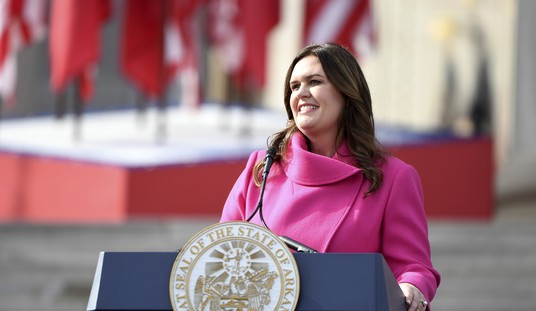He almost certainly did not intend to do so, but National Journal's Brian Resnick has written an article inadvertently making the case for limited government. Under the header, "The Battle for Your Brain: We're partisans by nature, and once we pick a side, we see the world in red and blue," Resnick writes:
America's partisan divide is as old as America's democracy. And it's neither feasible nor desirable to hope for a national consensus on every issue. Even if we all worked from the same set of facts, and even if we all understood those facts perfectly, differences of opinion would—and should—remain. Those opinions are not the problem. The trouble is when we're so blinded by our partisanship that it overrides reason—and research suggests that is happening all the time.
With just a hint of partisan priming, an Arizona State University researcher was able to instantly blind Democrats to a noncontroversial fact, leading them immediately to fail to solve the easiest of math problems. In the 2010 experiment, political scientist Mark Ramirez asked subjects two similar questions. The control group saw this question: "Would you say that compared to 2008, the level of unemployment in this country has gotten better, stayed the same, or gotten worse?" A separate group saw this one: "Would you say that the level of unemployment in this country has gotten better, stayed the same, or gotten worse since Barack Obama was elected President?"
The key difference between the two: the first mentions the time period for assessing unemployment, while the second frames the issue around President Obama. When asked the first question, Democrats and Republicans responded similarly, with most saying unemployment had remained about the same. But among subjects who got the second question, opinions shifted along partisan lines: Around 60 percent of Democrats said unemployment had gotten better or somewhat better, and about 75 percent of Republicans said the opposite.In fact, the unemployment rate increased between Obama's election and Ramirez's study. ... Essentially, once Democrats focused on Obama, most of them largely ignored the facts.
Recommended
(emphasis added)
This is not meant to be a hit on Democrats. Resnick does not mention it, but Republicans are almost certainly just as likely to ignore inconvenient facts when primed to think politically too.
But the fact that politics primes humans to let tribalism overcome their rational thinking suggests that maybe politics is not the best way to coordinate human behavior. Maybe the government, particularly the federal government, should not be so active in so many areas of American life. Maybe markets are better, not perfect but better, at incentivizing rationale human thinking.
In fact, Resnick accidentally reports this is just the case. Later in the article he writes:
There's an easier way to help people look past their innate partisanship: Pay them to do it.
A 2013 study out of Princeton found that monetary incentives attenuate the partisan gap in answers to questions about the economy. The researchers designed an experiment similar to Ramirez's unemployment study but with a modification: Some participants were plainly informed, "We will pay you for answering correctly." All it took was $1 or $2 to dramatically improve the chances of a right answer, cutting the partisan gap between Republicans and Democrats in half—half!
Imagine that: When people are offered monetary incentives to recognize the reality around them, they tend to see the world more accurately, and less tribally.
Maybe policy makers should work harder at not politicizing everything and let Americans organize more of what they do voluntarily.

























Join the conversation as a VIP Member